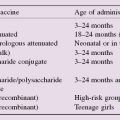All the useful functions of antibody depend on its ability to combine with the corresponding antigen to form an immune complex (glance back at Fig. 20 to be reminded of the forces that bring this about). The normal fate of these complexes is phagocytosis (bottom left), which is greatly enhanced if complement becomes attached to the complex; thus, complex formation is an essential prelude to antigen disposal.
However, there are circumstances when this fails to happen, particularly if the complexes are small (e.g. with proportions such as Ag2 : Ab1 or Ag3 : Ab2). This can occur if there is an excess of antigen, as in persistent infections and in autoimmunity, where the antibody is of very low affinity or where there are defects of the phagocytic or the complement systems.
If not rapidly phagocytosed, complexes can induce serious inflammatory changes in either the tissues (top right) or in the walls of small blood vessels (bottom right), depending on the site of formation. In both cases it is activation of complement and enzyme release by polymorphs that do the damage. The renal glomerular capillaries are particularly vulnerable, and immune complex disease is the most common cause of chronic glomerulonephritis, which is itself the most frequent cause of kidney failure.
Note that increased vascular permeability plays a preparatory role both for complex deposition in vessels and for exudation of complement and PMN into the tissues, underlining the close links between type I and type III hypersensitivity. Likewise there is an overlap with type II, in that some cases of glomerulonephritis are caused by antibody against the basement membrane itself, but produce virtually identical damage.
Complexes
of small size are formed in antigen excess, as occurs early in the antibody response to a large dose of antigen, or with persistent exposure to drugs or chronic infections (e.g. streptococci, hepatitis, malaria), or associated with autoantibodies.
Fc Receptors (FcR)
A family of receptors found at the surface of many cell types that bind to the constant (known historically as the Fc) region of antibodies (see Fig. 14). Fc receptors on macrophages and neutrophils facilitate phagocytosis, and are responsible for the opsonizing effects of antibody. Most Fc receptors bind much more efficiently to antibodies that form part of an antigen–antibody complex, thus ensuring that free antibody in serum does not fill up the receptors and interfere with their function.
PC
Plasma cells are the last stage of differentiation of activated B cells. Plasma cells are long-lived cells that settle in the medulla of lymph nodes, or in the bone marrow, and produce extraordinarily large amounts of specific antibody until they die.
Macrophages
Stay updated, free articles. Join our Telegram channel

Full access? Get Clinical Tree




